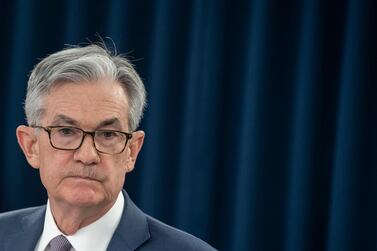British chancellor Rishi Sunak announced the imposition of a two per cent upfront tax surcharge on non-resident property buyers in the UK as he unveiled his first budget on Wednesday.
The move fulfills a commitment in the ruling Conservative Party's election manifesto from last year, though the rate is slightly below the three per cent rate published during the 2019 election campaign.
Mr Sunak also said the measure would be delayed by a year and come into force in April next year.
"I’m confirming today that our manifesto promise to introduce a new stamp duty surcharge for non-UK residents will be introduced at a rate of 2% from April 2021," he said.
Buyers from outside of the UK pay the same rates as British-based purchasers but the government has been underpressure to free up the supply of available homes to domestic residents amid a housing shortage.
The two per cent is likely to be levied after the existing stamp duty taxes which are tiered alongside the property's value as well as a three percent levy for those buying a second home.
The top rate of stamp duty is 12 per cent on properties selling for more than £1.5 million.
“Non-resident buyers will breathe a sigh of relief that the Stamp Duty surcharge will not be introduced this year and will be one per cent lower than expected," said Sean Randall, a partner at Blick Rothenberg, the leading tax and advisory firm. "However, it will be introduced and appears to be driven by political imperative rather than economic theory."
The Conservative manifesto said the move would help rebalance the market in areas where overseas demand had skewed the property market. It pointed out that apartments or houses were not being bough by end users. "They are often bought by wealthy individuals or companies and kept as investments or rented out at inflated prices: a recent study showed that 13 per cent of new London homes were bought by non-residents in 2014 to 2016," it said. "This adds significant amounts of demand to limited supply, inflating house prices and making it harder for people in Britain looking to get a foot on the property ladder."
It added that the extra tax on foreign purchasers would address the issue of homelessness in city centres. "The measure will raise up to £120 million a year, and this money will be directed at programmes to help tackle rough sleeping."
In fact the two per cent hike will raise just £100m according to Treasury estimates when it takes force from April 1, 2021.
The budget announced a much bigger package to tackle the rough-sleeping issues. "I’m confirming nearly £650m of funding to help rough sleepers into permanent accommodation," Mr Sunak said. "That will buy up to 6,000 new places for people to live."
Other rumoured incentives for first time buyer to enter the market, possibly funded by an exit tax on properties as well as the stamp duty at the time of purchase, did not appear.
Experts predicted a upsurge in foreign-based transactions in the year before the tax takes effect.
"Although a crowd-pleaser, these stamp duty changes will have little impact on the housing market," said Jamie Morrison, head of private client at accountancy firm HW Fisher. "Overseas buyers activity only accounts for a small part of the overall property market and so the impact of a 2 per cent hike in the rate for overseas buyers, while a blow, is not fatal."
The independent public spending board, Office for Budget Responsibility said sharp increases in UK property prices are in the pipeline. It predicted the market would be rising by 7.5 per cent next year before slowing towards 2024.
Over the five years from 2019, the OBR expects as 23 per cent rise in UK property values. Prior to Wednesday's budget it was predicting a 17 per cent rise.







